2018 was my year of reading for #resistance. I’m grateful that there were so many amazing books that nourished my soul in more ways than one—I needed artistry to give me beauty, I needed social consciousness to give me fire, and I needed the innovations in craft and storytelling to inspire my own writing.
I started off reading Tayari Jones‘s masterpiece, An American Marriage, which explores the effects of racism in the American “justice” system on a young African-American couple’s relationship after the husband is falsely accused of rape and imprisoned. The novel isn’t just politically relevant; it’s also beautiful in its telling of the love story of Celestial and Roy. The emotional repercussions of Roy’s incarceration had me crying the last 100 pages.
Another deeply inspiring work was Tommy Orange‘s debut novel, There There, about “urban Indians” gathering for a pow wow in Oakland, California. This novel has it all—great characters, compelling plot, lyrical language, and innovative storytelling that made my heart race. It also shows the way U.S. government policy, symbols, and even popular culture have worked to erase Native Americans. This innovative novel fights that erasure in indelible ways.

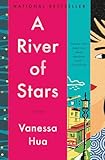 There were a number of exciting debuts by Asian-American writers, including first novels by R.O. Kwon and Vanessa Hua. Kwon’s The Incendiaries uses innovative jumps in point of view to tell the story of religious extremists who turn to terrorism—that is, a fundamentalist North Korean-backed Christian cult that bombs an abortion clinic. And Hua’s novel A River of Stars puts human faces to headlines about “birth tourism” and anchor babies. Hua’s deeply empathetic storytelling kept me turning the pages.
There were a number of exciting debuts by Asian-American writers, including first novels by R.O. Kwon and Vanessa Hua. Kwon’s The Incendiaries uses innovative jumps in point of view to tell the story of religious extremists who turn to terrorism—that is, a fundamentalist North Korean-backed Christian cult that bombs an abortion clinic. And Hua’s novel A River of Stars puts human faces to headlines about “birth tourism” and anchor babies. Hua’s deeply empathetic storytelling kept me turning the pages.
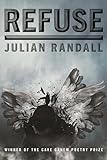
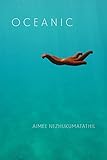
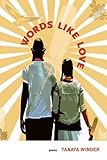
 I was inspired, too, by poets, including Julian David Randall, whose debut collection, Refuse, won the Cave Canem Poetry Prize. His poems show empathy and fire from the point of view of a queer Black Latinx man making his way in the world. Aimee Nezhukumatathil‘s fourth collection Oceanic left me breathless reading her love songs for Earth’s many creatures. I also reread Tanaya Winder‘s Words Like Love, which addresses with fire and fury and, yes, even love, the poet’s grappling with cultural loss and attempts at reconstruction of her multi-tribe Indigenous heritage. Poet Norman Antonio Zelaya‘s debut short story collection, Orlando and Other Stories, offers resistance in the face of gentrification in the Mission district of San Francisco with prose that echoes the voices of the uncles and “old heads” and other Nicaraguan-American protagonists of Zelaya’s world.
I was inspired, too, by poets, including Julian David Randall, whose debut collection, Refuse, won the Cave Canem Poetry Prize. His poems show empathy and fire from the point of view of a queer Black Latinx man making his way in the world. Aimee Nezhukumatathil‘s fourth collection Oceanic left me breathless reading her love songs for Earth’s many creatures. I also reread Tanaya Winder‘s Words Like Love, which addresses with fire and fury and, yes, even love, the poet’s grappling with cultural loss and attempts at reconstruction of her multi-tribe Indigenous heritage. Poet Norman Antonio Zelaya‘s debut short story collection, Orlando and Other Stories, offers resistance in the face of gentrification in the Mission district of San Francisco with prose that echoes the voices of the uncles and “old heads” and other Nicaraguan-American protagonists of Zelaya’s world.


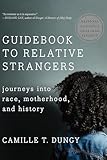
 Memoirists and essayists gave me hope and words for resistance. Alexander Chee‘s How to Write an Autobiographical Novel packed equal measures of historical heft and wit. The beauty of the sentences in Terese Marie Mailhot‘s Heart Berries took my breath away. Poet Camille T. Dungy‘s first essay collection, Relative Strangers: Journeys into Race, Motherhood, and History, delves into the fears and joys of an African-American woman adjusting to motherhood with language that sings. And I reread Luis Alberto Urrea‘s searing memoir, Nobody’s Son, which offers a welcome look at hybridity in the United States—from families and blood lines to the very language we speak.
Memoirists and essayists gave me hope and words for resistance. Alexander Chee‘s How to Write an Autobiographical Novel packed equal measures of historical heft and wit. The beauty of the sentences in Terese Marie Mailhot‘s Heart Berries took my breath away. Poet Camille T. Dungy‘s first essay collection, Relative Strangers: Journeys into Race, Motherhood, and History, delves into the fears and joys of an African-American woman adjusting to motherhood with language that sings. And I reread Luis Alberto Urrea‘s searing memoir, Nobody’s Son, which offers a welcome look at hybridity in the United States—from families and blood lines to the very language we speak.
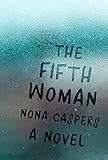
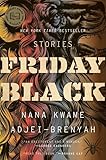 Meanwhile, I found much to savor in speculative fiction. For example, Nona Caspers‘s novel The Fifth Woman uses the tropes of spec fic to highlight the grieving process of a young queer woman in San Francisco mourning the loss of her partner. In precise and glowing prose, Caspers describes mysteriously animated shadow dogs, bosses who disappear or hide under desks, and a gathering of the dead at San Francisco’s Ocean Beach. Nana Kwame Adjei-Brenyah‘s debut short story collection, Friday Black, blew me away with its trenchant depictions of racist and capitalist-inspired violence. There are many standout stories, from “Zimmer Land” where a black employee of an amusement park faces patrons who kill virtually to the horrors of the titular story in which a clerk faces zombie-like patrons infected with a virus that makes them ravenous for sales.
Meanwhile, I found much to savor in speculative fiction. For example, Nona Caspers‘s novel The Fifth Woman uses the tropes of spec fic to highlight the grieving process of a young queer woman in San Francisco mourning the loss of her partner. In precise and glowing prose, Caspers describes mysteriously animated shadow dogs, bosses who disappear or hide under desks, and a gathering of the dead at San Francisco’s Ocean Beach. Nana Kwame Adjei-Brenyah‘s debut short story collection, Friday Black, blew me away with its trenchant depictions of racist and capitalist-inspired violence. There are many standout stories, from “Zimmer Land” where a black employee of an amusement park faces patrons who kill virtually to the horrors of the titular story in which a clerk faces zombie-like patrons infected with a virus that makes them ravenous for sales.
 Finally, I devoured all three volumes of Liu Cixin‘s science fiction epic, Three Body Trilogy (translated by Ken Liu and Joel Martinsen), which imagines the many ways that humanity might be destroyed, destroy ourselves, or pull back from the brink of galactic destruction. The books are filled with examples of human folly and treachery as well as hope and rebirth. The imagery in the last part of the third volume is stunning, but I can’t even mention examples without giving away major spoilers.
Finally, I devoured all three volumes of Liu Cixin‘s science fiction epic, Three Body Trilogy (translated by Ken Liu and Joel Martinsen), which imagines the many ways that humanity might be destroyed, destroy ourselves, or pull back from the brink of galactic destruction. The books are filled with examples of human folly and treachery as well as hope and rebirth. The imagery in the last part of the third volume is stunning, but I can’t even mention examples without giving away major spoilers.
More from A Year in Reading 2018
Do you love Year in Reading and the amazing books and arts content that The Millions produces year round? We are asking readers for support to ensure that The Millions can stay vibrant for years to come. Please click here to learn about several simple ways you can support The Millions now.
Don’t miss: A Year in Reading 2017, 2016, 2015, 2014, 2013, 2012, 2011, 2010, 2009, 2008, 2007, 2006, 2005
The post A Year in Reading: May-lee Chai appeared first on The Millions.
Source : A Year in Reading: May-lee Chai













